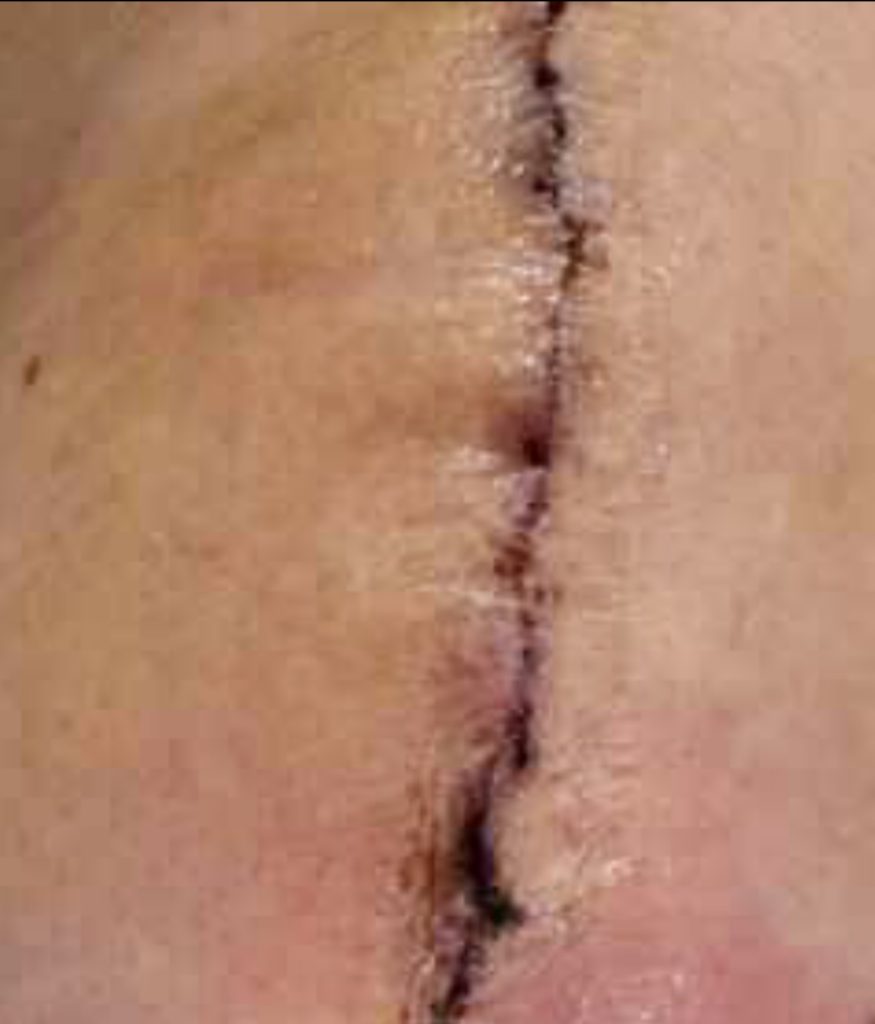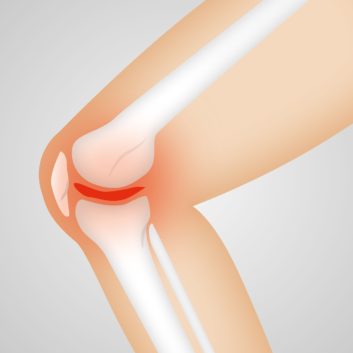TOTAL KNEE REPLACEMENT: WHAT YOU NEED TO KNOW BEFORE HAVING SURGERY
( Disclaimer: The information on this blog is based on my knowledge and experience as a Physical Therapist and for general informational purposes only, not a legal advice )
I am a physical Therapist in a home health setting and have been with the same company for almost 16 years now. All those years, I have learned so much and have grown in my field that I am very confident in what I do now.
I see and treat total knee patients everyday and thought of sharing my knowledge and experience here.
If you have been feeling miserable, in pain, struggling to get by everyday, been limping for for weeks or years, have no quality of life and have finally decided to have a total knee replacement, I hope some of these informations will enlighten you prior to having surgery.
HERE ARE THE THINGS YOU NEED TO CONSIDER BEFORE HAVING A TOTAL KNEE REPLACEMENT:
1. YOUR MEDICAL CONDITION:
THIS IS VERY IMPORTANT. Make sure you are physically healthy, mentally and emotionally ready. You need to consult your primary care physician ( PCP ) about your plan to have a TKR. If you have a heart condition, you need clearance from your cardiologist as well as your dentist if you have any tooth problem or infection. I have some of my patients, their surgery were cancelled because of tooth problem because it could lead to potential risk of infection.
2. CHOOSING THE RIGHT ORTHOPEDIC SURGEON:
If you have decided which surgeon to go with, get to know your surgeon. Surgeons have their own preferences when it comes to techniques, methods, protocols and instructions. Make sure you can be comfortable with that surgeon, some people or patients, bedside manner is very important!! Trust me, I’ve heard the best and the worst!! LOL. I have patients telling me ” I will never ever go back to that doctor again, he is rude!! He told me this and this and that “
Here are some things to consider in choosing the right orthopedic surgeon for you:
METHODS OF WOUND CLOSURE THEY USE:
These are the common methods that I have encountered with knee replacement.
A. STAPLES – This needs to be removed between 10-14 days, others goes up to 21 days post op depending on your surgeon. Usually, my patients goes for follow up in 2 weeks and staples are being removed at doctor’s office. On the contrary, some surgeons will order PT to remove the staples in the house post op day 10 or 14. It varies.
B. SKIN SUTURES – NON DISSOLVABLE STITCHES – This needs to be removed between 10-14 and goes up to 21 days. Some orders we receive says ” Daily dressing change ” or sometimes when we call the surgeons office we get verbal instructions of ” change dressing only when saturated “ I don’t see much of this lately.
C. SURGICAL GLUE – This is dissolvable, usually it is covered with Dermabond Prineo System, a self adhering mesh. No daily dressing change needed and other orthopedic doctors will let you shower right away post op day 1. I often see this with robotic knee surgery.

Have you heard of robotic knee surgery? Are you curious about it? Here’s what I know.
MAKO ROBOTIC ARM ASSISTED SURGERY – This technology uses a 3D CT- based planning software. Basically, there is a robot device, a computer and a robotic arm. This a personalized joint replacement surgical plan which allows your surgeon pre-plan your surgery using a 3D model of your knee and it allows precise placement of the implant. The surgeon is in control and assists the robotic arm in doing the surgery not the other way around. I have patients telling me ” I don’t want any robot doing my knee, I want a real surgeon doing it ” so I try to explain to them that it is actually the surgeon doing it with the guide of a robotic arm to assist the surgeon to make it more precise and accurate for them to do their job. Most of my patients actually has great success with Mako Robotic surgery with great range of motion and quicker recovery. I have patient who started walking with a straight cane post op day 2. Pretty impressive!!
THE TYPE OF DRESSINGS:
ABSORBENT DRESSING – ( EX: Island dressing, Primapore, Bordered gauze ) – The most common. This type of dressing needs a daily dressing change, with other surgeons you will get instructions to change dressing only when it is saturated. I usually do daily dressing change on every visit depending on the order. I also educate my patient/family members on how to change the dressing.
AQUACEL DRESSING – The thick dressing. This is what I call the ” DO NOT REMOVE ” dressing, unless I get instruction to remove it. This is a hydro fiber wound gel-like moisture-retention dressing that has antimicrobial properties of ionic silver that combats infection. Usually I get instruction from surgeon to remove dressing post op day 7, day 10 or DO NOT REMOVE dressing until patient sees ortho surgeon for follow up in 2 weeks. This does not need a daily dressing change. Pretty cool right?
PICO DRESSING – The one with the pump. This is the Negative Pressure Wound Therapy ( NWPT ) system. So basically you will go home with a NWPT pump, a tube that connects to the absorbent adhesive dressing. This type of dressing draws out excess fluid from the surgery knee keeping it clean. The pump has 4 indicators like green is OK, it is working and orange means low battery, AIR LEAKS and when dressing is saturated. You have to be very careful not to pull the tube by accident, make sure you put the pump in your pocket or attac
3. SURGEONS PROTOCOL:
COLD THERAPY – ICE. Will they send you with ice cold compression machine? Or you buy your own gel packs? Or you use your frozen beans from the freezer.
NO COLD THERAPY – meaning ” NO ICE “. This may surprise you but other surgeons does NOT allow you to put ICE on your surgery knee at all. The explanation? I was told it is something about the procedure that some surgeons does that they don’t want any moist or moisture building up when using ice. I will update this section once I find out, that’s all I know so far.
PAIN MEDICATIONS: Is your surgeon willing to give you another script for your pain meds? Or do you need to go to your primary doctor when you ran out of pain meds. Unfortunately, sometimes you will be sent to a pain management doctor to get a new script as other surgeons does not give another script.
ANTIBIOTICS – Some surgeons will send you a 3-5 day antibiotics. Mostly, they don’t depending on your medical condition and the outcome of your surgery.
ANTI COAGULANTS ( BLOOD THINNER ) – Oral medications or injections. Most of the surgeons will send you home with oral anti coagulants but other surgeons will send you with syringes, meaning you or your family member has to give you a shot daily. Usually it’s between 7-14 days. They also ask you to stop taking Aspirin while you are on anti coagulants injection. If you or your family member is not comfortable with the shots, you may want to request oral anti coagulants.
4. YOUR MEDICAL INSURANCE COVERAGE:
Most knee surgeries are covered with insurance but make sure you check with your insurance provider. Check your deductibles and also your co-pay when you get home health services and when you go outpatient rehab. Every insurance has different coverage let’s say with home health services, for Physical Therapy sometimes they will authorize you with 8 visits, others 6 visits only.
TIP: I have learned from my patients, if both of your knees are bad, you might wan to have them both done in the same year then to you don’t have to worry paying another deductible.
5. MEDICAL EQUIPMENTS:
After knee surgery, you will be sent home from the hospital with the following (unless you tell them you already have one ) : Walker, a rolling or regular walker, doctor’s preference, ( usually no four-wheeled walker ) and 3 in 1 bedside commode. These assistive devices are usually covered by your insurance. If you were sent home without a bedside commode and you think you need it, your home health nurse or PT can order one for you but only get 1 in every 5 years through your insurance. Shower chair is not covered by your insurance.
6. SUPPORT SYSTEM
Do you have a family member who can take care of you? If you are living alone, what is your plan? Do you have someone who will drive you to your doctor’s appointment, do you have someone who will prepare your meals, pick up your medications, help you get dressed, changed your dressing, put your shoes/socks on, gives you shots and so on. These are the things you need to consider. Make sure you have a clear plan ahead.
7. YOUR LIVING SITUATION:
Do you live in a 1 or 2 story home, a mobile home? Does your house have steps, stairs, ramps? This is very important. Do you have pets? Where are you gonna sleep in your 1st night? Is your bed high? Are you able to get in and out of bed safely, go to the toilet safely at night if you live alone.
8. PHYSICAL THERAPY:
Here comes my part. Physical Therapy plays a vital role with your recovery!! Your surgeon will usually order home health services in the first 2-3 weeks. Most surgeons usually order ” PT Only ” but others order RN especially if patient has medical issues, needs medication regime or if knee is still draining and needs nursing assessments and wound care. Most orthopedic doctors gives order to see patient for 3wk2, that is 3x a week for 2 weeks or daily for 2 weeks and then you will see your surgeon in 2-3 weeks for follow up where they remove the staples and do x-ray then you will go outpatient rehab for a month or so, usually 3x for 4 weeks.
9. IS TOTAL KNEE SURGERY PAINFUL?
YES YES AND YES. BUT, I always tell my patients to look at the bright side. After surgery and therapy, you will have increase functional mobility, will be back on your feet without assistive device ( depends on your age ) will have increase knee active range of motion and most importantly, it will IMPROVE YOUR QUALITY OF LIFE!! You can start planning your cruise trip, travel and enjoy being finally pain free!!
So, is total knee replacement worth it?
YES. But the key to success is hard work, self discipline and compliant with instructions and protocols. Meaning, you have to do your knee exercises religiously and follow whatever your Physical Therapist tells you to do, our main goal is to get you to your PLOF ( prior level of function ) or better!! On the other cases, your success will vary depending on your prior medical condition and the severity of the disease.
I hope this topic enlightened you and gave you knowledge and ideas what to expect in having knee replacement.
Pls feel free to comment and shoot me a question.



